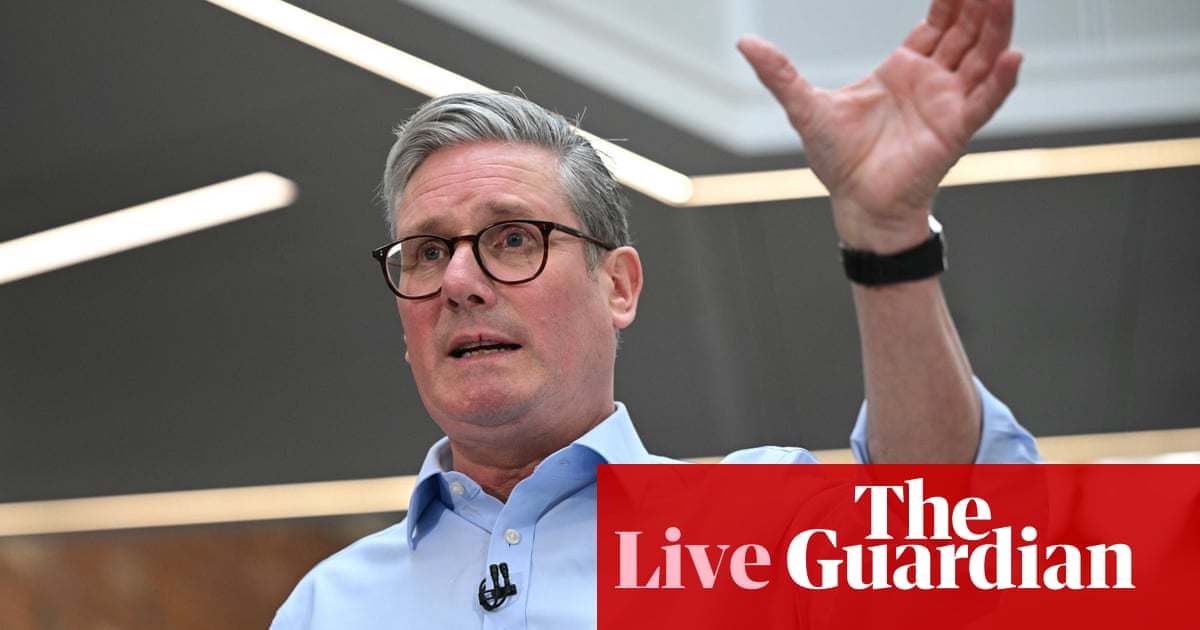The sister of a headteacher who took her own life after anOfstedreport has accused the government of ignoring a coroner’s findings on her death by failing to change the school inspection regime,Matthew Weaverreports.
Good morning. There are just three days of campaigning left before this year’s local elections. In some respects, these are a minor set of local elections. There are no elections in Scotland, Wales, Northern Ireland or London, and there are only about 1,600 council seats being contested. In some years there are more than 8,000 council seats up for grabs in England alone. But the elections have also been described asthe most important for a generation, because they are expected to confirm the emergence of Reform UK as a permanent, significant political force. At the very least this would prove that the old, two-party political model is broken, replaced by a four-party system – what the Economist callsa “20-20-20-20” system– Labour, the Tories, Reform UK and the Lib Dems all hovering at around 20% of the vote – or a five-party system, if you include the Greens. Or it could even mean that the Conservative party is on its way out.
Keir Starmerand Kemi Badenoch have both got campaign events lined up today. Starmer is keen to talk about the NHS and, in a messageon social media, he made a bold claim this morning – arguing that Labour is taking the NHS out of “the dark ages”.
Starmer has provided the quote ina news releasehighlighting figures showing that, by increasing the use of the NHS app, the government is making the NHS more efficient. TheDepartment of Health and Social Caresays:
This is welcome news, but people may question whether it amounts to the end of the dark ages. It is also a bit Matt Hancock (which is not necessarily a bad thing, but which serves as a reminder that improving the NHS’s use of tech has been a cross-party goal for years).
The DHSC announcement coincides with the release ofa reportfrom theHealth Foundation, a leading health thinktank, giving a different take on the NHS. It says A&E care in England is “far worse” now than before the pandemic. It says:
Here is the agenda for the day.
Morning:Keir Starmeris on a vist in the north-west of England.
11am:Plaid Cymru is publishing its economic plan for Wales at at event in Ammanford.
11.30am:Downing Street holds a lobby briefing.
Morning:Nigel Farage, the Reform UK leader, is campaigning in Melton Mowbray in Leicstershire. In the afternoon he will be in Salisbury.
Early afternoon:Kemi Badenochis on a visit in Lincolnshire, where she is due to speak to the media.
2.30pm:Bridget Phillipson, the education secretary, takes questions in the Commons.
2.30pm:John Swinney, Scotland’s first minister, gives a speech to the Scottish TUC conference.
Afternoon:Starmer is meeting Mohammad Mustafa, prime minister of the Palestinian national authority, in Downing Street.
If you want to contact me, please post a message below the line when comments are open (normally between 10am and 3pm at the moment), or message me on social media. I can’t read all the messages BTL, but if you put “Andrew” in a message aimed at me, I am more likely to see it because I search for posts containing that word.
If you want to flag something up urgently, it is best to use social media. You can reach me on Bluesky at @andrewsparrowgdn.bsky.social. The Guardian hasgiven up posting from its official accounts on Xbut individual Guardian journalists are there, I still have my account, and if you message me there at @AndrewSparrow, I will see it and respond if necessary.
I find it very helpful when readers point out mistakes, even minor typos. No error is too small to correct. And I find your questions very interesting too. I can’t promise to reply to them all, but I will try to reply to as many as I can, either BTL or sometimes in the blog.
